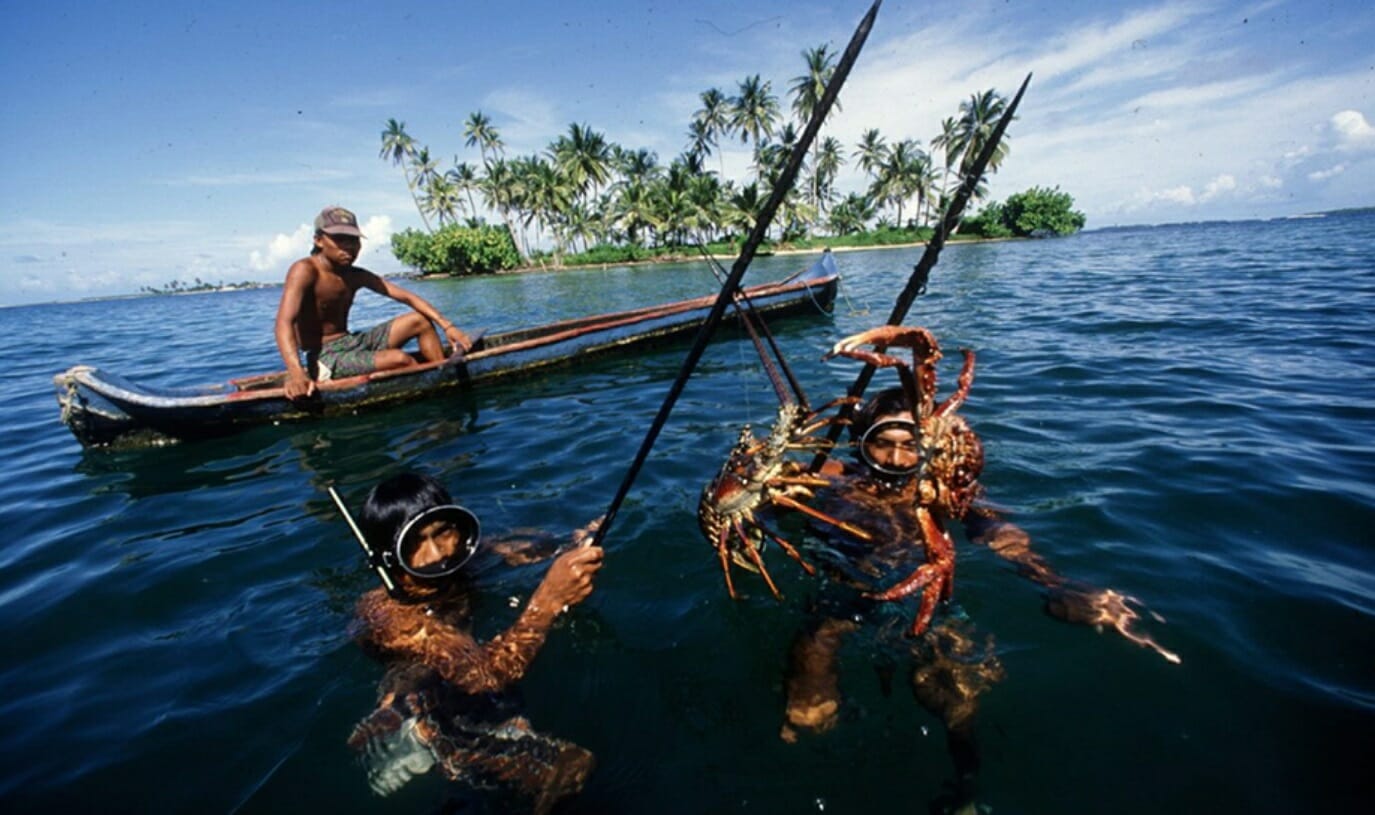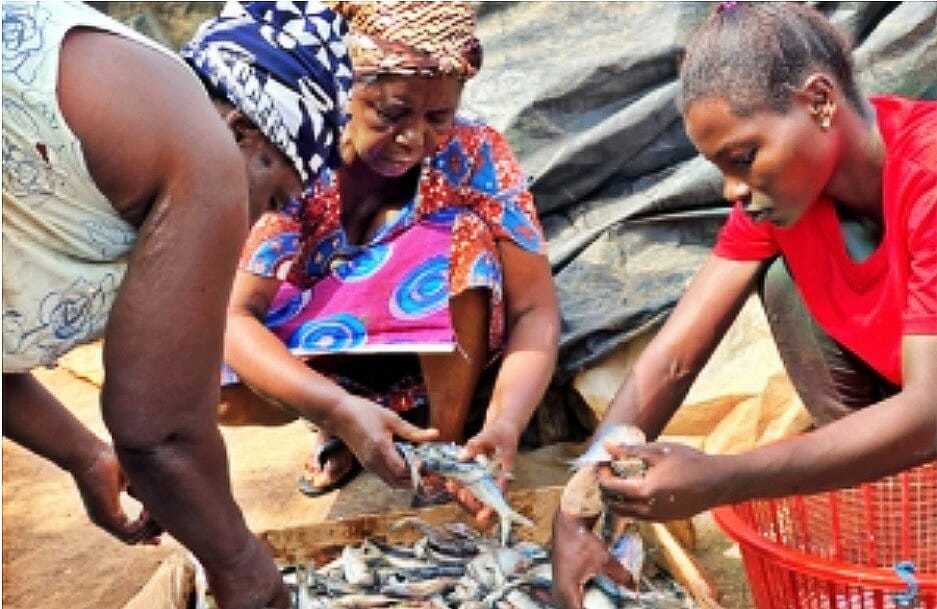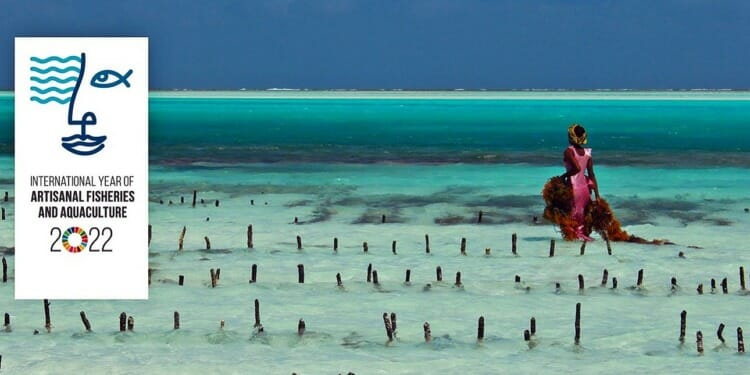2022 is not only the Year of the Tiger, 2022 is also the International Year of Artisanal Fisheries and Aquaculture. In fact, a few years back the United Nations General Assembly decided to proclaim 2022 the International Year of Small-scale Fishing and Aquaculture (IYAFA). It also called on the Food and Agriculture Organization (FAO) to take a leadership role on activities related to the year in collaboration with other relevant organizations and bodies of the United Nations system.
The vital contribution of fisheries and aquaculture to global food security and economic growth cannot be overemphasized. Fisheries and aquaculture provide the primary source of animal protein for 17 percent of the world’s population. In low-income food-deficit countries and small-island developing states that number is almost 25 percent. Small-scale fisheries employ more than 90 percent of the world’s capture fishers and provide many local communities in the developing world with a source of food security and livelihoods.

Small-scale artisanal fisheries and aquaculture hold a unique potential to promote changes in how, by whom, and for whom aquatic foods and products are harvested, processed and distributed.
The recognition of small-scale artisanal fisheries and aquaculture as a sustainable method of food production is imperative as current food systems face increasing challenges globally. Such challenges include hunger and diet-related diseases, the need to provide a growing global population with sufficient and healthy food, vast amounts of food loss and waste, the depletion of natural resources, environmental degradation, and climate change.
Nevertheless, despite their high potential, small-scale artisanal fisheries and aquaculture themselves face unique and complex challenges. Not only do they face threats from other sectors, but also from within the fisheries and aquaculture sectors. For example, habitat degradation, illegal, unreported, and unregulated fishing (IUU), and overfishing, are core challenges that compromise the very basis of the ecosystems on which they depend.
Economically, small-scale artisanal fisheries and aquaculture often face power imbalances in value chains, unnecessary barriers to trade and lack the appropriate skills and services to access markets with healthy products at a fair price.
Additionally, fishers, fish farmers, fish workers, and their communities cannot obtain proper social services such as healthcare, education, housing, financial and legal services unless action is taken to ensure their access: In short, social sustainability requires serious redressing to ensure equitable coverage.
The recognition and respect of the role of women remain another core, cross-cutting challenge to ensuring not only gender equality and equity but also to the achievement of sustainability: when women are empowered and have the opportunity to earn and control income, their spending is more likely to benefit a household’s nutrition, health and education.

Lastly, the need for resilience strategies in small-scale artisanal fisheries and aquaculture is becoming ever more evident in order for communities to be better prepared for environmental degradation, shocks, disasters and climate change.
COVID-19 has thrown light onto the deficiencies of the structures and systems upon which small-scale artisanal fisheries and aquaculture are dependent. However, it has also shown how innovative these sectors can be, and there is now an opportunity to cooperatively reconfigure the way in which small-scale artisanal fisheries and aquaculture are managed and governed that will ensure their autonomy in the future as well as their ability to provide food security and nutrition along with the responsible management of natural resources.
The International year of artisanal fisheries and aquaculture (IYAFA) 2022 is a unique opportunity to highlight the valuable role small-scale artisanal fisheries and aquaculture play in global food security and nutrition, poverty eradication and natural resource management. This includes the sector’s contribution towards the UN Sustainable Development Goals (SDGs), and in particular SDG 14.b. which addresses access for small-scale artisanal fishers to marine resources and markets.
FAO is committed on a daily basis to raising awareness and encouraging the population and its institutions to promote, show and share what small-scale fishing does or is able to do if supported. Likewise, it attempts to highlight how the livelihoods of millions of women and men around the world depend on the small-scale fishing and aquaculture sector for their most basic needs.
As IYAFA 2022 falls within the UN Decade of Family Farming (UNDFF 2019-2028), the two celebrations will reinforce each other and provide greater visibility for small-scale producers.
IYAFA 2022 is not only about showcasing the achievements of small-scale fisheries and aquaculture. It is about building a sustainable future for those who depend on it and the resources upon which they depend.
We hope to see further progress this year on the various SDG14 indicators, including the four for which FAO is the custodian agency, including improving the status of fish stocks (SDG 14.4), eliminating harmful subsidies that lead to IUU fishing (SDG 14.6) and increasing economic benefits for SIDS and the world’s least developed countries through sustainable use of marine resources and sustainable management practices (SDG 14.7).
While all UN members have endorsed the UN Sustainable Development Goals Agenda 2030 and committed themselves to the individual targets, cooperation is essential. Multilateral solutions and agreements require collaboration and ongoing discussion between policymakers and there will be plenty of opportunities to promote discussion in 2022.
The FAO Committee on Fisheries (COFI) will meet on 5-9 September 2022 and the two FAO Sub-Committees on Aquaculture and Fish Trade will meet in May and June. This year FAO will also release a new edition of its flagship publication, the FAO State of World Fisheries and Aquaculture (SOFIA).
2022: A year of major events to discuss issues affecting fisheries and aquaculture
Ocean governance and the sustainable use and management of our aquatic resources will be at the top of the agenda at several major events scheduled for 2022. In February, policymakers, scientists and others will attend the One Ocean Summit in the port city of Brest in France, the Our Oceans conference will be held in Palau in April and the UN Ocean conference will take place in Lisbon, Portugal from 27 June to 1 July.
Questions may be asked about the timing or relevance of these events and how they will guarantee progress on substantive issues affecting fisheries and aquaculture. Our answer is simple: there is no alternative.
So far progress meeting the specific targets of the UN Agenda 2030 has been partial or slow, and in some areas, it has even taken a step backward due to the COVID-19 pandemic and other factors. It is critically important to speed up any action that will advance international awareness and dialogue and move us closer towards achieving the UN SDG targets.
Together the international community has achieved many impressive milestones in fisheries governance with the adoption of the FAO Code of Conduct, endorsement of the Port States Measures Agreement (PSMA), the FAO Guidelines for Catch Documentation Schemes and the Voluntary Guidelines for Securing Sustainable Small-Scale Fisheries.
All these agreements emerged from extensive international dialogue before finally being endorsed by policymakers on a global level.
Our personal wish for 2022 is for all of us to work together to produce concrete and positive outcomes on the UN SDG14 targets – and bring an urgent end to the pandemic that has caused so much pain and suffering around the world.
Editor’s Note: The opinions expressed here by Impakter.com columnists and contributors are their own, not those of Impakter.com. — In Featured Photo: Logo for IYAFA22 Credit: FAO Guidelines for securing sustainable small-scale fisheries










